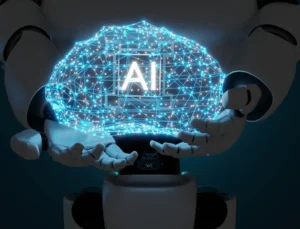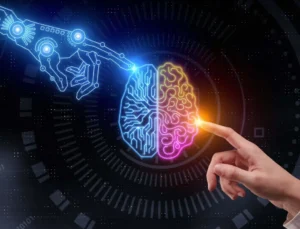
“A computer would deserve to be called intelligent if it could deceive a human into believing that it was human.”
— Alan Turing
Alan Turing’s timeless words capture the enduring fascination humanity holds for artificial intelligence. Since the 1950s, the quest to build machines capable of human-like thought has been both inspiring and enigmatic. Today, that journey continues—evolving from Generative AI, which creates, simulates, and assists, toward the ambitious frontier of General AI, where machines might one day reason and understand as deeply as we do.
This is the story of how far we’ve come—and how much further we might go.
The Birth of AI: Dartmouth’s Vision
Our story begins at Dartmouth College in the late 1950s, where a group of visionary scientists gathered for a workshop that would officially mark the birth of artificial intelligence. Their mission was simple yet profound: to create machines capable of understanding language.
This pioneering moment planted the seed for decades of innovation. Yet even then, luminaries like Alan Turing posed a haunting question: Could machines truly think?
Turing’s own reflections hinted at the complexity of the challenge. In an age when even human cognition was a mystery, imagining a machine capable of genuine thought seemed a dream beyond reach. Still, the spark from Dartmouth ignited a global pursuit—a pursuit that has defined technological progress ever since.
The AI of Today: Simulation or True Intelligence?
Fast-forward to the present, and AI is everywhere—curating playlists, recommending purchases, answering questions, and guiding decisions. But a deeper question persists: Are today’s machines truly intelligent, or are they simply simulating intelligence?
Whether it’s Amazon anticipating what we’ll buy, YouTube predicting our next favorite video, or Google finishing our sentences, today’s AI systems showcase astonishing predictive power. Yet beneath this sophistication lies mimicry, not consciousness. These systems replicate patterns of cognition—but do not understand them.
The Post-COVID AI Acceleration
The pandemic didn’t just change how we live—it accelerated how we innovate. According to PwC, 86% of businesses expected AI to become mainstream within their organizations by 2021. AI is no longer an emerging technology; it’s a foundational one.
Key AI Market Insights
- A $15.7 Trillion Future: AI is projected to add $15.7 trillion to the global economy by 2030—an estimated 26% boost to global GDP. (World Economic Forum, 2020)
- Exponential Industry Growth: The AI market is expected to reach $266.92 billion by 2027. (Fortune Business Insights, 2020)
- Retail Transformation: Over 80% of retail executives anticipate integrating AI by 2027. (Fortune Business Insights, 2020)
- Hardware Expansion: AI-driven hardware revenue is set to climb to $234.6 billion by 2025. (Statista, 2020)
AI is no longer a futuristic concept—it’s a driving force behind global economic and technological transformation.
Understanding the Spectrum: Narrow, General, and Superintelligent AI
Artificial Intelligence exists across three broad categories:
- Artificial Narrow Intelligence (ANI):
Focused on specific tasks such as voice assistants, chatbots, or recommendation engines. These systems excel within limited domains but lack general reasoning. - Artificial General Intelligence (AGI):
Often called “Strong AI,” AGI would match human cognitive abilities—understanding, reasoning, and adapting across diverse contexts. - Artificial Superintelligence (ASI):
The theoretical stage where machines surpass human intelligence entirely, capable of outperforming us in every intellectual domain.
The Quest for Deep AGI
Artificial General Intelligence, sometimes referred to as Deep AI, represents the next frontier. This form of intelligence aims to equip machines not just with problem-solving capabilities, but with the ability to comprehend human emotions, beliefs, and intentions.
Yet the path to AGI is anything but simple. For example, Japan’s Fujitsu K supercomputer once required 40 minutes to simulate just one second of neural activity—illustrating the sheer complexity of replicating the human brain’s processes.
To reach AGI, machines must master not only learning and reasoning but also common sense, abstraction, and contextual understanding—traits deeply rooted in human experience.
The Final Question: Can Machines Truly Think?
As AI advances at unprecedented speed, the ultimate question remains:
Can machines ever achieve true general intelligence?
Hybrid models, neural networks, and emerging cognitive architectures may bring us closer to that reality. Each breakthrough—no matter how small—edges us toward a future where AI may not just assist us, but truly understand us.
From the modest beginnings at Dartmouth to today’s AI-driven world, our journey from Generative AI to General AI is a testament to human ingenuity and curiosity. It’s a story of technology intertwining with humanity—one where the line between creator and creation grows ever thinner.
Shaping the Future Together
At RekordistFintech, we stand at the forefront of this transformation. By blending innovation with human insight, we’re helping organizations harness the power of AI to shape a smarter, more connected future.
Join us on the journey from Generative to General AI—and be part of building the intelligence of tomorrow.



